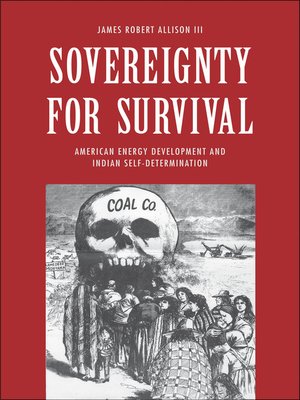Sovereignty for Survival
ebook ∣ American Energy Development and Indian Self-Determination · The Lamar in Western History
By James Robert Allison

Sign up to save your library
With an OverDrive account, you can save your favorite libraries for at-a-glance information about availability. Find out more about OverDrive accounts.
Find this title in Libby, the library reading app by OverDrive.



Search for a digital library with this title
Title found at these libraries:
| Library Name | Distance |
|---|---|
| Loading... |
In the years following World War II many multi-national energy firms, bolstered by outdated U.S. federal laws, turned their attention to the abundant resources buried beneath Native American reservations. By the 1970s, however, a coalition of Native Americans in the Northern Plains had successfully blocked the efforts of powerful energy corporations to develop coal reserves on sovereign Indian land. This challenge to corporate and federal authorities, initiated by the Crow and Northern Cheyenne nations, changed the laws of the land to expand Native American sovereignty while simultaneously reshaping Native identities and Indian Country itself.
James Allison makes an important contribution to ethnic, environmental, and energy studies with this unique exploration of the influence of America's indigenous peoples on energy policy and development. Allison's fascinating history documents how certain federally supported, often environmentally damaging, energy projects were perceived by American Indians as potentially disruptive to indigenous lifeways. These perceived threats sparked a pan-tribal resistance movement that ultimately increased Native American autonomy over reservation lands and enabled an unprecedented boom in tribal entrepreneurship. At the same time, the author demonstrates how this movement generated great controversy within Native American communities, inspiring intense debates over culturally authentic forms of indigenous governance and the proper management of tribal lands.







